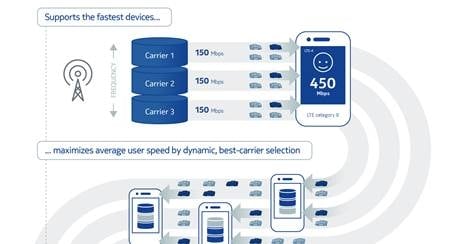According to Strategy Analytics Wireless Operators Strategies (WOS) and RF & Wireless Component Service (RFWC) report, as operators' interest in LTE Advanced increases and network deployments accelerate, many will need to rely on three LTE carriers to make full use of LTE-A.
Phil Kendall, Director of WOS, said that, "Fragmented spectrum holdings mean that in 2017, about half of all LTE wireless operators will have to use carrier aggregation across three carriers, or LTE bands, to achieve LTE Cat. 6 data rates (downlink of 300 Mbps). We think LTE Cat. 6 will be considered the minimum needed to support a good user experience for media-rich applications in mid- to premium-tier smartphones and tablets. From an operator perspective, carrier aggregation not only provides faster speeds, but it also improves network performance by balancing traffic across bands."
Christopher Taylor, co-author of the report and director of the RF & Wireless Components advisory service at Strategy Analytics, added that "OEMs now have more choices in chipsets that support carrier aggregation, however, Qualcomm's new Snapdragon 820 is the first to support 3x downlink carrier aggregation, which many operators will need over the next two years in LTE-A devices running on their networks."




















